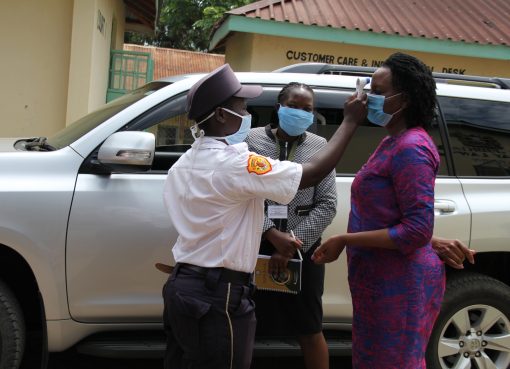The Kenya Association of Private Hospitals (KAPH) has today condemned the shutting down of Shalom hospital in Machakos County and the arrest of its staff and directors terming the action as illegal.
The KAPH argues that the matter should have been dealt with by the Medical Practitioners and Dentists’ Board (MP&DB) which is charged with the mandate of registering and licensing all medical doctors, dentists, and healthcare facilities in the country.
The move to shut down the hospital was an order by Machakos County Governor, Alfred Mutua after a seven-month old child, Ethan Muendo died a week ago after what was claimed to be over an overdose of a drug.
A prescription obtained from the hospital indicated that the baby was injected at the hospital with morphine after
suffering a minor burn.
The Association Chairman, Abdi Mohamed defended the hospital staff during a media briefing session on Tuesday at the Nairobi Club, saying as medical professionals had rights by which they deserve fair treatment.
He argued that issues that fall within the realm of professional negligence occur in medical institutions not only in
Kenya but also worldwide, and the Shalom hospital issue should not be taken as an exception.
“Regardless of the highly emotionally charged environment within which these events occur, their handling by the legally mandated organs must be sensitive to the aggrieved parties, ensure procedural justice for the medical professionals and institutions involved, and any actions taken must be within the strict confines of the law,” argued Mohamed.
Private hospitals play an integral role in the quest for the achievement of universal healthcare in Kenya, with private and faith-based facilities providing 61.8 percent of healthcare services in this country, he noted.
Speaking at the briefing, Shalom Community Hospital Secretary General, Dr. Timothy O. Olweny said they were hopeful that the mandated bodies would expeditiously and fairly adjudicate such matters.
“Now we have grave concerns regarding the initial administrative and legal actions that have been taken subsequent to these events,” he said.
Olweny stated that the segregation of the mandates of the statutory bodies tasked with regulation and oversight of private healthcare institutions seems to have been blurred by these incidents.
“Arbitrary and hasty arrest of healthcare workers and hospital management for incidents that occur in the course of their duties doesn’t augur well for the health sector,’’ he added.
Olweny further stated that the closure of an institution which is duly registered and licensed must be a measure of last resort and can only be effected by the authority that provided such license in the first place.
By Yvonne Kadzo


